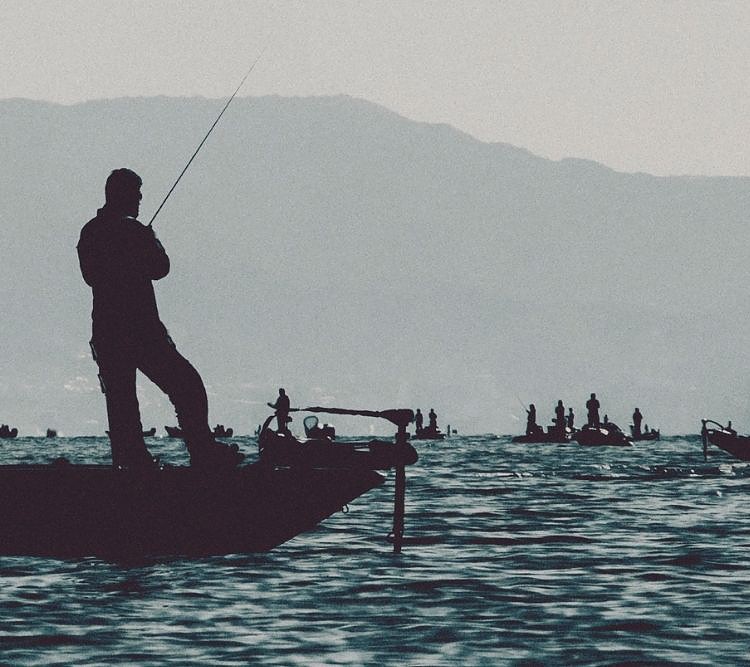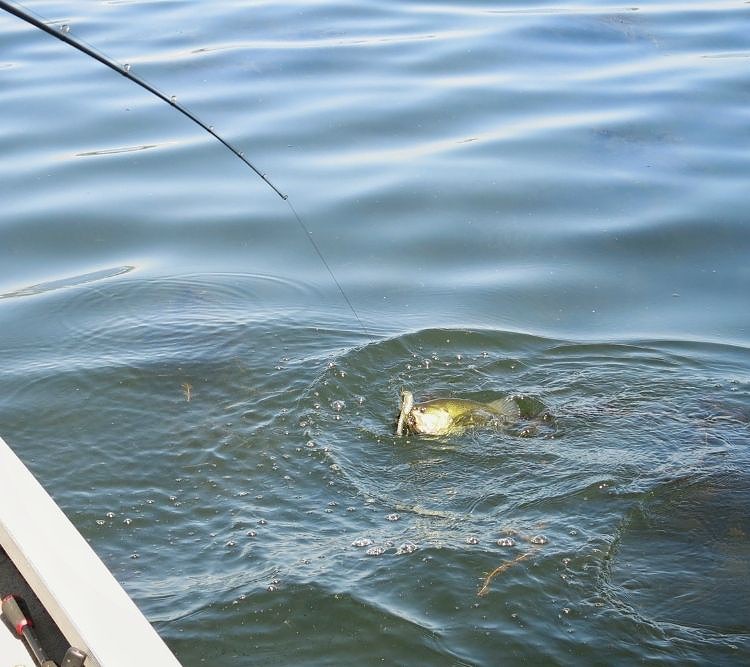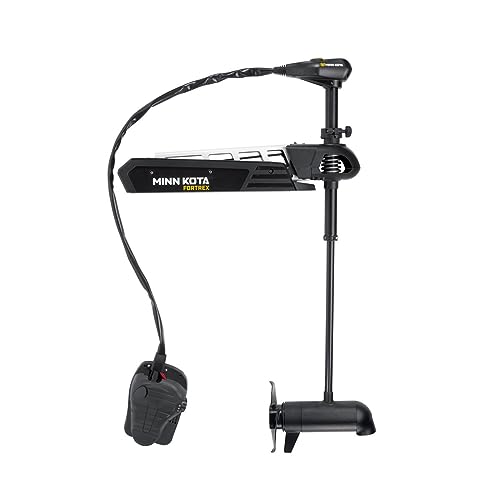Have the fish stopped biting lately?
If you’re having trouble catching fish, then you’re probably looking for answers. Could your trolling motor be causing the problem?
All trolling motors produce at least some noise, and of course, that noise is going to be amplified underwater. But is it enough to keep the fish away? Is there anything you can do to ensure the fish don’t swim for cover every time you turn on the trolling motor?
Keep reading!
In this article, we’ll answer the question of whether trolling motors scare fish, as well as tips for more effectively using your trolling motor when fishing. We’ll also take a look at some other factors that may be affecting the number of fish you catch.
Ready to get started?
Table of Contents
Can Trolling Motor Noise Spook the Fish?

Of course, there is no straight “yes or no” answer to this question. Not all fish behave the same way around trolling motors, not all trolling motors make the same amount of noise, and other environmental factors can play a role in how the fish respond on any given day.
Trolling motor noise will probably bother the fish in quiet, shallow ponds, especially if you have the motor on a higher speed and run your boat over the top of them several times. It may not bother them as much in high-traffic fishing areas where the fish have gotten used to the noise.
But even then, it will depend on the types of fish you’re trying to catch. Many smaller fish, such as walleye and crappie, may even be attracted by the motor noise. Bass and other types of larger fish become spooked much more easily.
The type of trolling motor you have, how you use it, depth and clarity of the water, other noise from the boat, and even how used to noise the fish are–all of these factors may also contribute to whether the fish stay away or not.
Some of those factors, you can’t control; but let’s take a closer look at the ones you can control.
Tips to Use a Trolling Motor Without Scaring the Fish Away

If you’re new to using a trolling motor for fishing, then you may not realize all the things you can do to increase your fishing success.
If the fish have stopped biting lately, or you never had much luck to begin with, why not try implementing some of the following tips? You may just be amazed by how many fish you start catching.
Avoid Frequent Stopping and Starting
Turning your motor off and on scares the fish much more than the steady, constant hum of the motor.
Many trolling motors have an automatic anchor function, or “spot-lock”, that keeps you in one place without turning the motor off. Even without spot lock, you can use a physical anchor to secure your boat in place.

If you’d rather not keep your trolling motor running while you fish, it’s best to turn it off shortly before you reach the spot where you want to anchor, then pole or paddle the rest of the way.
Whatever you do, try to avoid stopping and starting the motor multiple times, and keep the speed setting as steady as possible given the water conditions.
On that note:
Run on a Lower Speed
Lower speed settings naturally produce less motor noise. They will also cause less of a disturbance in the water because your boat will be moving slower.
As you approach your desired fishing spot, you’ll want to reduce your speed to the lowest setting possible. The same is true if you’re trolling lures. Keep your speed low, and the fish should be none the wiser.
Use a Cable Steer Trolling Motor
There are two types of trolling motors: cable steer and electric steer. Though electric steer motors often have great high-tech features such as wireless control and GPS, they tend to be a lot noisier than cable steer trolling motors.
If you’re concerned about trolling motor noise scaring the fish, then it’s probably best to use a cable steer motor.
- 45" Shaft, 36v, 112 lbs Thrust
- Universal Sonar 2: Keeps your transducer and wiring completely concealed and protected, running everything through the trolling motor's shaft, with shielded connectors
Last update on 2026-02-25 at 04:37 / Affiliate links / Images from Amazon Product Advertising API
Make Sure Nothing is Loose
Even cable steer trolling motors may make extra noise if the motor head, mounting bracket, or any hardware components are loose. This is because the loose parts will tend to shake around a lot more, causing vibrational noise that will sound a lot louder under the water.
Routinely inspect your trolling motor for any loose bolts, wires, or other components, and tighten them as needed.
Fish in Popular Spots

As mentioned above, the fish living in high-traffic fishing areas will probably be used to a lot more noise than the fish in quiet ponds. If the sound of trolling motor noise is part of their routine existence, they will probably have become desensitized to the noise.
Fish for Less Sensitive Species
Walleye, crappie, and some other small fish species generally are not sensitive to trolling motor noise. In fact, the noise may even draw them closer, as they may be curious about any new disturbance.
If you’re fishing for a specific species, it wouldn’t hurt to do some research on that species and find out how they tend to react to noise.
What Other Factors Can Affect Fishing Success?
Perhaps, after reading the list above, you’re thinking, “But I do all of those things, and the fish still aren’t biting. Maybe it’s not the trolling motor. What else could it be?”
Glad you asked!
Other noise coming from the boat, as well as water clarity and depth, may also affect what the fish are doing.

Other Boat Noise
Of course, trolling motors aren’t the only thing that makes noise in a boat. Loud music, people laughing or yelling, other equipment running–all of these may produce enough noise to keep the fish away.
Oddly enough, even some fish finders may scare the fish off!
In general, the best way to approach a fishing area is softly and cautiously. You want to sneak up on the fish, not loudly broadcast your presence in their world.
Water Clarity
If the water is clear, the fish will be able to see the trolling motor and the underside of your boat better. It won’t be hard for them to figure out where the noise is coming from if they can see you easily.
If the fish just aren’t biting, try trolling in muddier waters. Some fish may be more likely to disregard the motor noise if they can’t see you.
Water Depth
Water depth also plays a huge role. Trolling motors are meant for use in deeper waters, typically more than 4 or 5 feet. In shallow waters, the noise will be a lot louder, and the waters will likely be a lot choppier as well.
If you fish in shallow waters, it’s best not to use a trolling motor at all, even a quieter one. Instead, use a pole or a pair of oars.
Conclusion
Trolling motors do sometimes spook the fish, but whether or not they’re biting can depend on many different factors.
For best results, follow the tips in this guide to reduce the noise produced by your trolling motor and to more effectively conceal your presence from the fish.

Sarah Hood has been writing for Anchor Travel since 2021. When she’s not writing, she enjoys cooking, singing, and spending time in the great outdoors.


